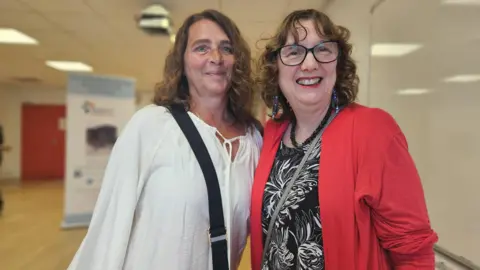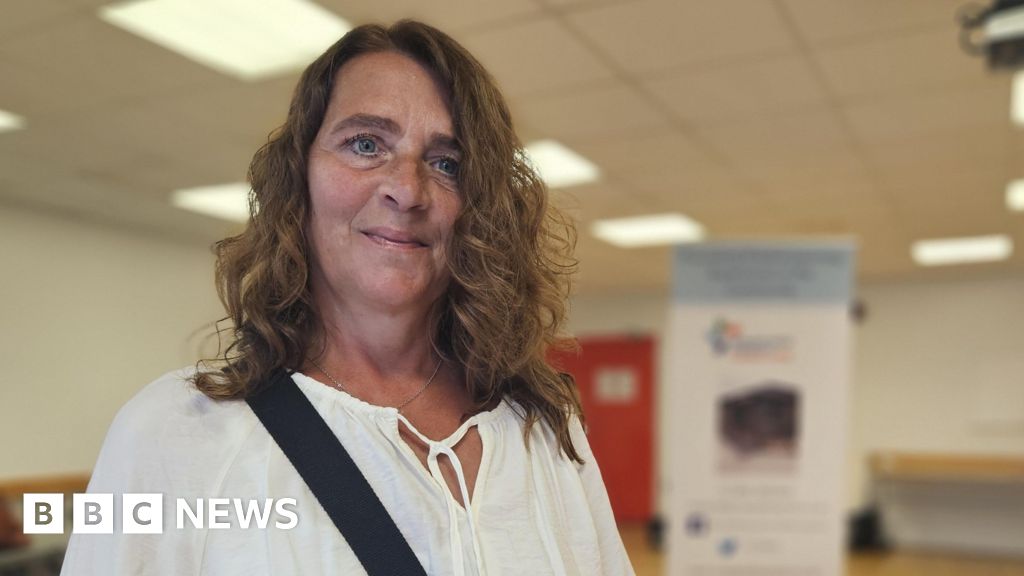BBC News, West Yorkshire political reporter
 Aisha Iqbal/BBC
Aisha Iqbal/BBCWhen Beverley Callon moved from Dorset to Huddersfield with her young son after a family breakdown, she hoped for a fresh start. Instead, the stress of mounting debt pushed her to the edge.
“I wasn’t eating, I wasn’t paying any bills. The rent wasn’t getting paid,” she says.
“I just didn’t know where to start.”
Beverley’s story is painfully familiar to thousands across Yorkshire.
As the cost-of-living crisis bites, Bradford-based debt advice charity Christians Against Poverty (CAP) warns of a silent epidemic of fear, shame and isolation gripping those in financial trouble.
CAP’s latest report, No Time to Lose, finds that most people seeking help feel isolated – fearing phone calls, opening the post and even a knock at the door.
That fear is all-too familiar to Beverley, 54.
“The phone calls started, people were coming to the door – it was just a strain,” she says.
 Getty Images
Getty ImagesWith bailiffs looming, she turned to her local church and met Yvette Robinson, a CAP debt coach.
They worked together on budgets and savings plans until Beverley finally cleared her £11,000 debt over a number of years.
“Anybody can get into debt – for any reason,” says Yvette.
“We never judge how someone got into debt.
“We’re here to help them get out of it. The important thing is that people don’t have to face it alone.”
Early education ‘vital’
The average new CAP client in Yorkshire owed more than £11,600 last year, the charity says.
Meanwhile, figures released earlier this year by financial advisers Hargreaves Lansdown found households are now spending an average of £216 a month on credit cards, loans and overdrafts – a figure that soars to nearly 20% of income in the UK’s debt hotspots.
With unsecured debt growing faster than people’s incomes, campaigners warn this is fuelling poverty, deepening inequality and exposing the urgent need for government action.
Yvette believes that early financial education from primary school onwards would be a “vital” tool in helping children learn lifelong good money habits.
“Because if young people don’t learn, when they grow older, they’re not going to be able to manage,” she says.
Before last year’s election, Labour faced calls to commit to action on debt, but though it made tackling unsustainable international debt a key manifesto policy, campaigners say progress on household debt support has been slow.
One notable move came last month when the Ministry of Justice announced a consultation on debt enforcement reforms.
The proposals included independent regulation of bailiffs, limiting doorstep visits and making enforcement fees fairer.
“Debt recovery must be fair to everyone,” said Justice Minister Sarah Sackman KC, launching the changes.
“If you fall into debt you should be treated fairly and supported to get back on your feet.”
 Aisha Iqbal/BBC
Aisha Iqbal/BBCBut campaigners want further comprehensive reforms on lending practices and bigger investment in community-based debt advice.
Toby Murray, from the Debt Justice campaign group which has launched a People’s Manifesto On Debt, said: “Labour came to power promising to tackle economic insecurity.
“But so far, this government has barely scratched the surface.
“While a cap on Universal Credit deductions, Buy-Now-Pay-Later regulation and consultations on debt enforcement are welcome steps, they do little to tackle the reality of the household debt crisis.
“Worse, government welfare reforms and financial deregulation risk pushing more people into hardship.
“People in debt are calling for urgent action: a ban on bailiffs, a duty of care for public creditors, and fair routes to write off unaffordable debt. The government needs to listen.”
For people like Beverley, the gap in – and growing demand for – statutory support is glaring.
“I went to Citizens Advice, but I couldn’t get an appointment,” she says.
“If it hadn’t been for CAP, I don’t know where I’d be.”
While the government provides information on debt support options through its website, campaigners say advice is often not easy to access when people are in crisis.
“We need more community hubs – places where people can get advice, mental health support, everything in one place,” Beverley says.
“Debt’s still a taboo. People shouldn’t have to suffer alone.”
Today, Beverley – previously a full-time carer for her son, who has ADHD – is building a new life.
She is retraining as a barista and dreams of starting her own coffee business.
But she knows many others remain stuck in the shadows of debt.
“I’ve never had a proper conversation about my future or what support I might need,” she says.
“It was through community courses I found a way forward – not through the system.
“A lot more needs to be done.”
If you are affected by the issues raised in this story, you can access support via the BBC Action Line.



